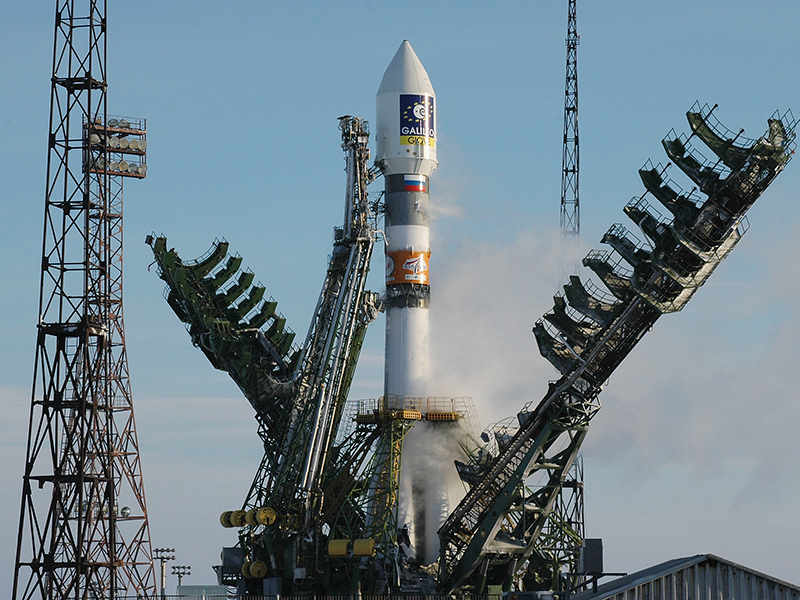Europe’s Galileo satellite network nears global coverage after successful launch
Following another successful launch, the EU’s Galileo network now comprises 22 satellites, moving Europe a step closer to a global navigation system of its own

The finalised Galileo network will consist of 30 satellites (24 operational and six active spares), each weighing approximately 700kg. It is hoped the remaining satellites will be launched by 2020
The European Space Agency (ESA) successfully launched four Galileo navigational satellites into medium Earth orbit on December 12. The launch brings the Galileo network up to a total of 22 satellites and means Europe is another step closer to activating its own global navigation system.
The Galileo programme was first formulated in 1999, but a number of delays and financial setbacks have prevented its completion. In total, the finalised network will consist of 30 satellites (24 operational and six active spares), each weighing approximately 700kg. It is hoped the remaining satellites will be launched by 2020.
Currently, satellite navigation tools must rely on the US’ Global Positioning System (GPS), Russia’s Global Navigation Satellite System or a host of regional satellite networks. Once fully operational, the Galileo network should improve the reliability of navigation systems in the EU, while also delivering financial benefits. According to recent European Commission estimates, the global market for satellite navigation services could be worth €250bn ($293.7bn) by 2022.
Once fully operational, the Galileo network should improve the reliability of navigation systems in the EU, while also delivering financial benefits
ESA Director General Jan Wörner praised the work of several partner companies that have contributed towards the Galileo project and confirmed the satellite constellation is now just one launch away from delivering global coverage: “It is a great achievement of our industrial partners OHB and SSTL for the satellites, as well as Thales-Alenia-Space and Airbus Defence and Space for the ground segment and all their subcontractors throughout Europe, that Europe now has a formidable global satellite navigation system with remarkable performance.”
Spending an estimated €3bn ($3.5bn) creating another satellite network may not appear to be the most sensible use of EU funds, particularly when most businesses and individuals have no problems with the GPS system as it is now.
However, between six and seven percent of the $16trn EU economy currently relies on global navigation systems, and this figure is only going to rise in the future. If the Galileo network can improve reliability and efficiency across the continent, then it will quickly pay for itself.













